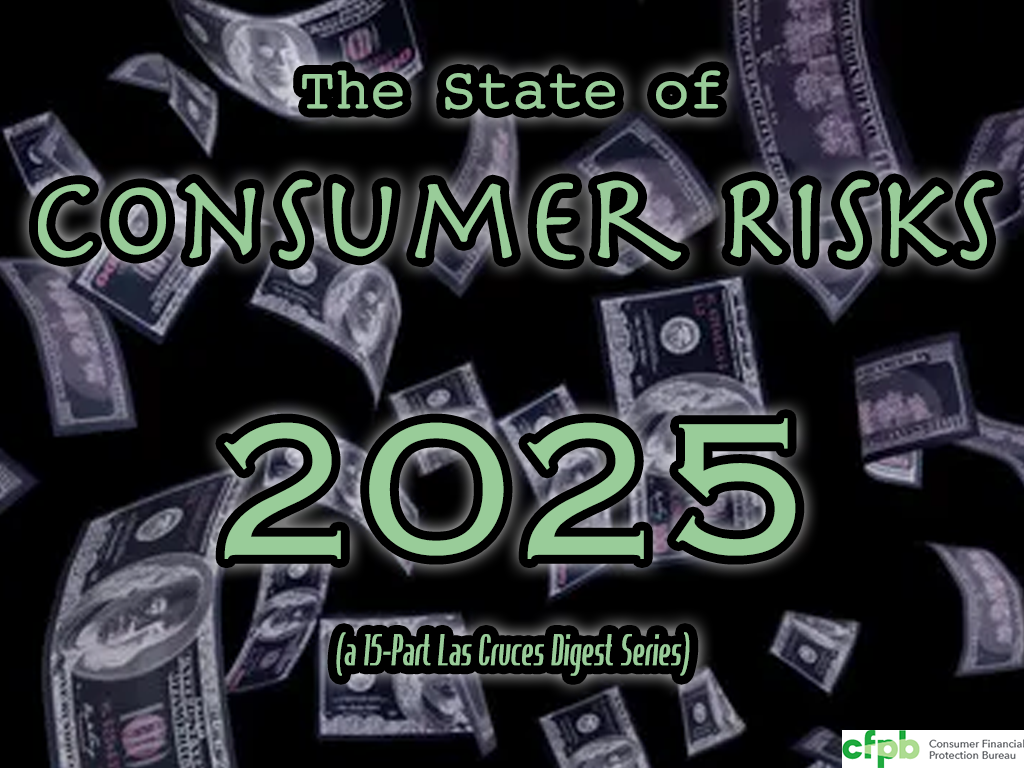-and-
Agency warns companies against illegal devaluation of rewards and other unlawful practices, highlights issues with retail credit cards, and launches a tool to help find cards with lower rates.
Source: Consumer Financial Protection Bureau
WASHINGTON, D.C. —The Consumer Financial Protection Bureau (CFPB) announced major actions in December to protect consumers from illegal credit card practices and help people save money on interest and fees. In a circular to other law enforcement agencies, the CFPB warned that some credit card companies operating rewards programs may be breaking the law, including by illegally devaluing rewards points and airline miles. The CFPB also published new research finding that retail credit cards—which typically offer store-specific rewards and loyalty programs—charge significantly higher interest rates than traditional cards. The CFPB further launched a new tool, Explore Credit Cards, to help consumers find the best credit card rates across both rewards cards and traditional cards. This first-of-its-kind tool enables consumers to compare more than 500 credit cards using unbiased, comprehensive data.

“Large credit card issuers too often play a shell game to lure people into high-cost cards, boosting their own profits while denying consumers the rewards they’ve earned,” said CFPB Director Rohit Chopra. “When credit card issuers promise cashback bonuses or free round-trip airfares, they should actually deliver them. The CFPB is taking aim at bait-and-switch tactics and promoting more competition in credit card markets to protect consumers and give people more choice.”
The CFPB’s actions arrive during the busy end-of-year shopping and travel season; for instance, retail card originations tend to be seasonal, peaking in November and December as retail sales volumes and promotions are high during the holidays.
CFPB Moves to Stop Credit Card Rewards Program Schemes
The circular released by the CFPB addresses practices in credit card rewards programs, which companies increasingly use to encourage consumers to apply for and use specific cards. Since 2019, more than 90 percent of general-purpose credit card spending occurred on rewards cards. In today’s marketplace, credit card issuers often promise cash, points, and miles sign-up bonuses to consumers, as well as rewards for certain types of spending. Consumers have reported to the CFPB that these rewards can be difficult to redeem or are sometimes devalued by policy changes by partners.
In May 2024, the CFPB and the U.S. Department of Transportation hosted a public hearing about challenges consumers are experiencing and the lack of competition in airline and credit card rewards programs. In conjunction with the hearing, the CFPB issued a report finding consumers encounter numerous problems with credit card rewards programs.
Today’s circular warns that companies may violate federal law when they:
- Devalue earned rewards: Consumers make decisions on whether to open or use a credit card based on the value of card benefits and rewards conveyed by a company’s advertising and other communications. If the company later deflates the value of a customer’s accrued awards, this may be an unfair or deceptive practice resembling a bait-and-switch scheme.
- Hide the conditions for earning or keeping rewards: Fine print disclaimers or vague terms buried in a contract may unlawfully conflict with prominent promotional language advertising the rewards consumers can earn. Companies may also illegally rely on fine print to cancel valuable rewards that consumers have already earned. If consumers’ receipt of rewards is revoked, canceled, or prevented based on buried or vague conditions, that may be an unfair or deceptive act or practice.
- Fail to deliver promised benefits: Companies operating rewards programs are responsible for ensuring consumers can redeem the rewards they have earned, including coordinating with merchant partners and vendors. If system failures result in consumers losing points when attempting to redeem, this may be considered an unfair or deceptive practice.
The CFPB has taken action against issuers such as American Express and Bank of America for illegal practices related to credit card rewards programs. The CFPB will continue to monitor these programs and will take necessary action on these issues as appropriate.
CFPB Research Highlights High Interest Rates, Consumer Complaints with Retail Credit Cards
As part of its work to monitor the U.S. credit card market, the CFPB published new research identifying key findings about retail credit cards. Retail credit cards represent a significant part of the consumer credit card market, and one out of every four credit card accounts is a private label retail card, with over 160 million open accounts in 2024. The CFPB found that retail cards—more than 80 percent of which are issued by four large banks—are more expensive than general purpose cards, with 90 percent of retail cards reporting a maximum annual percentage rate (APR) above 30 percent, compared to only 38 percent of non-retail general purpose cards in one CFPB survey sample. In December 2024, private label cards for the top retailers had an average APR of 32.66% for new accounts.
In complaints submitted to the CFPB, consumers have also reported experiencing aggressive sales tactics at the point of sale, inability to redeem promotions, and frustration with paper statement fees and late fees. Private label store cards make up a disproportionate amount of late fee volume compared to their share of account volume, according to the CFPB’s analysis.
-and-
A New, Unbiased Way to Explore Credit Cards and Find Lower Interest Rates
The CFPB also launched Explore Credit Cards, a tool that helps people make apples-to-apples comparisons about options in the credit card market, using open data. Unlike existing comparison sites that may feature a limited selection of cards with high annual fees and APRs, rely on kickback schemes, and accept money to promote cards, the CFPB’s new tool provides unbiased, comprehensive data for more than 500 cards, and the data is available to everyone. Earlier this year, the CFPB issued a circular explaining that companies operating existing shopping tools can break the law when they steer consumers to certain products or lenders because of kickbacks.
The tool addresses a lack of price competition in the credit card market: despite significant rate differences between issuers serving similar customers, people cannot easily compare interest rates before applying. By enabling consumers to explore cards based on credit score range, interest rates, fees, and rewards offerings, the tool also affords consumers with a higher degree of certainty when searching for cards for their situation.
The data and tool will promote more competition in the credit card market and allow smaller providers and companies with better offers a chance to compete. The CFPB is also inviting more companies to contribute to the data set, to make sure that the information can cut through the marketing on pay-to-play platforms.
The CFPB previously used the same comparison data to show that the 25 largest credit card issuers charged interest rates 8 to 10 percentage points higher than smaller banks and credit unions – a difference that can cost the average cardholder $400 to $500 per year. By requiring issuers to report their actual average interest rate by credit tier and making this data public, people have access to information to find the best rates based on their situation and needs.
By law, the 25 largest issuers of credit cards and 125 others selected by the CFPB as a representative sample of all issuers are required to submit data to the CFPB. Additional issuers can voluntarily contribute their data. The CFPB invites voluntary data submissions, particularly from smaller issuers, so they have a chance to promote their credit products in a market typically dominated by pay-for-play. The next publication will be in Spring 2025.
Read circular on credit card rewards programs.
Read the Issue Spotlight on the High Cost of Retail Credit Cards.
Explore credit cards with the CFPB’s new tool.
Consumers can submit complaints about financial products and services by visiting consumerfinance.gov/complaint or by calling (855) 411-CFPB (2372).
Employees who believe their company has violated federal consumer financial protection laws are encouraged to send information about what they know to whistleblower@cfpb.gov. To learn more about reporting potential industry misconduct, visit consumerfinance.gov/whistleblower.





